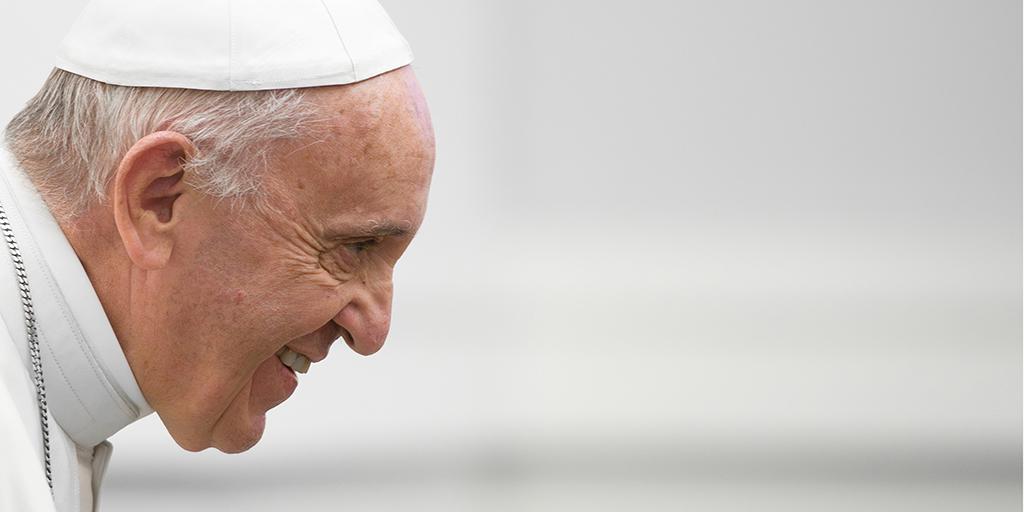
After Pope Francis—What’s Next for the Roman Catholic Church?
Pope Francis, formerly Jorge Mario Bergoglio of Argentina before being elected to the papal office, died this Monday morning. He had appeared at St. Peter’s Basilica the day before, too weak to deliver the traditional Easter message but able to pronounce a blessing on the assembled crowd of thousands and to meet with United States Vice President JD Vance.
One would reasonably consider his death unsurprising. Having suffered lung difficulties from a young age, his recent respiratory crisis and double pneumonia had left him extremely weakened and unable to carry out many of his usual duties.
With his death, speculation will shift into overdrive: Who will succeed him in the head office of the largest and most influential religious organization on earth, the Roman Catholic Church? In two or three weeks, the College of Cardinals is expected to convene and begin its process of electing a new pope.
This “changing of the guard” comes at a critical time for those of the Roman Catholic faith. Francis, in many ways, seemed to embody the liberal spirit and modern mentality of the Second Vatican Council of the early 1960s. He pressed against the boundaries of Catholic doctrine to the point that many under him were continually put-upon to explain how his words were somehow not a contravention of established teachings. In 2013, when asked about homosexual priests, he famously replied, “Who am I to judge?” More recently, Francis restricted usage of the Traditional Latin Mass preferred by many conservative Catholics, saying that it was being used ideologically by people afflicted with a “nostalgic disease.”
Francis personally appointed a substantial majority of the electors who will now determine his successor. Many Catholics are now praying that those electors will choose a new pope who will continue in his liberal reform-mindedness. Yet many others are praying just as passionately for a pope who will return to more traditional ways, feeling that their church is not meant to accommodate the world but to lead it in righteousness.
Interestingly, those on the “traditional” side seem increasingly to be younger Catholics. In 2024, at a Benedictine College commencement ceremony, Harrison Butker—the Kansas City Chiefs’ then-28-year-old kicker—gave a full-throated endorsement of the Traditional Latin Mass and stricter Catholic teachings on sexuality and family structure. And the New York Times highlighted in July 2024 that young priests “are overwhelmingly conservative in their theology, their liturgical tastes and their politics.” Francis’ death comes at a time when there is a growing struggle for the heart and soul of Roman Catholicism.
It is foolish to believe that internal politics will not be at play when the College of Cardinals gathers to choose the new leader. Yet more than politics will be at work.
Bible prophecy is unflinchingly plain about the end-times. Before Christ’s return, a charismatic, miracle-working false prophet will lead a global religious revival. This figure will be the head of a powerful, wealthy, world-encompassing church representing a false, counterfeit Christianity (2 Thessalonians 2:8–10; Revelation 17:1–6). This deceptive prophet will be the last in a millennia-long line of false preachers who have claimed to teach in Christ’s name—a line Jesus prophesied would begin during the lives of His own first apostles and be seen in the “antichrists” of their own day (Matthew 24:4–5; 1 John 2:18). This line will culminate in an end-time false prophet who will appear Christian but teach subtle lies and false doctrines of the Devil (Revelation 13:11).
This religious leader will wield political influence, as well, in league with a coming European superpower and its leader—the notorious “beast” of Revelation. Together, they will persecute those who resist his doctrines and seek to hold fast to the true teachings of Jesus Christ (vv. 12–15)—and the wealthy, powerful, compromising “Christian” church led by the false prophet is depicted in prophecy as becoming drunk on the blood of the righteous saints it will slaughter (Revelation 17:6).
The end of that vast, counterfeit church, its religious leader, his political ally, and the entire, blasphemous system they represent is certain—they will be utterly destroyed by Jesus Christ and His glorified saints at the Savior’s return. But, before that time, the prophesied false prophet to come—speaking in Christ’s name, claiming to act on His behalf and with His authority, and adored by millions upon millions of “Christians” worldwide—will be at the very center of an astonishing amount of suffering.
Of course, there is no guarantee that the next pope, Francis’ successor, will be long on his throne. Several popes have served for less than a month. Pope John Paul II, one of the most famous and influential popes of recent decades, came to power succeeding Pope John Paul I, who died after only 33 days in office. So, it is unwise to be too confident about what to expect of the next officeholder.
Anyone who is aware of the end-time prophecies of God’s word will be watching very closely what takes place at the Vatican in the weeks and months that follow. To find out more, you can watch the telecast “The False Prophet of Revelation,” available right here at TomorrowsWorld.org.
Stay up to date with our Weekly Digest Email!
Tomorrow's World ComMentary Podcast
Subscribe to Tomorrow's World Commentary podcasts on iTunes and Google Play!



